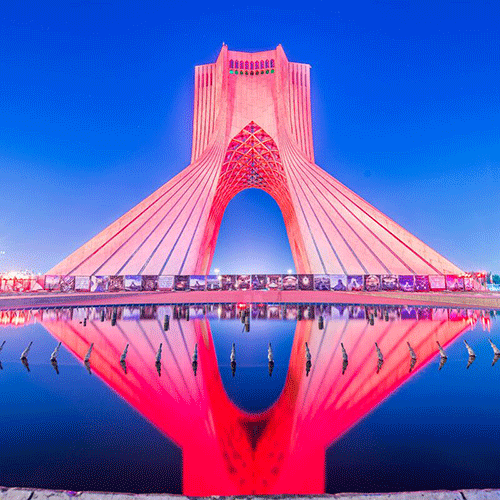Interview with Ambassador Taherian of Iran in Seoul
President Park Geun-hye of the Republic of Korea is exploring the possibility of making an official state visit to the Islamic Republic of Iran between April and June this year in an effort to further promote the fast-growing ties of cooperation between the two countries and to support the Korean companies to increase their involvement in the economic development of Iran. This was disclosed by Official Presidential Spokesman Jeong Yeon-guk at a meeting with reporters on Jan. 27, 2016.
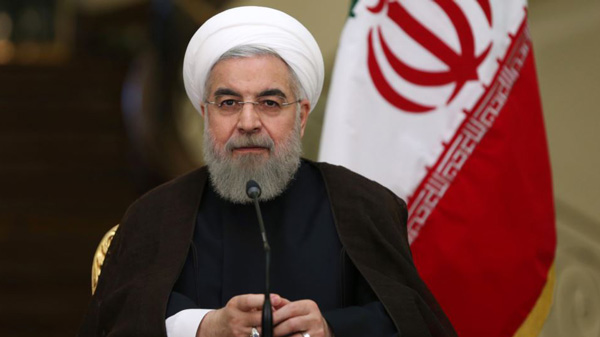
Spokesman Chung stated that President Park has been planning her visit to Iran since last year and that the government has a very favorable view on the visit of the President to the country.
Korean business companies, especially the construction and engineering companies, were very active in Iran in the past. However, strangely no Head of Government of Korea has ever visited the country. Against this backdrop, The Korea Post had an exclusive interview with Ambassador Hassan Taherian of Iran in Seoul. Here are the questions and answers of the interview:
As you may be aware for the last four to five years or so Iran has been on the international sanctions and now because of the nuclear agreement that the Iranian government successfully made with the United Nations Security Council member states, the agreement was finalized on Jan. 6, 2016 which means that all the impending sanctions have been lifted. Iran is committed to the implementation of that agreement. There are no restrictions or limitations for anyone in the world coming to Iran and do business, work or visit Iran.
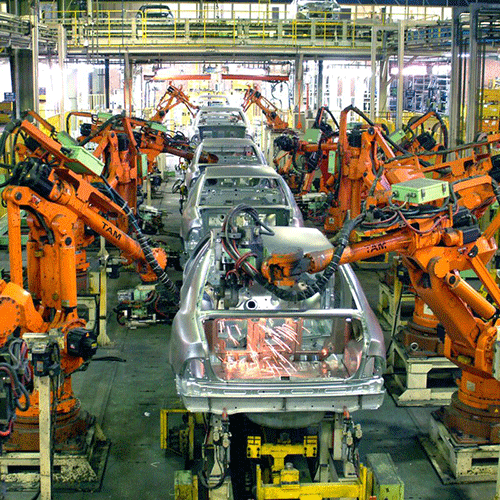
That has opened a new door of opportunities in Iran. There are therefore no restrictions whatsoever for anyone from the world willing to do any form of business with Iran. Iran now can freely connect to the other countries. This is why many countries today and not only Korea have developed new relationships with Iran. They want to visit Iran and do business, constructions or other forms of opportunities.
For the last one or two months since the sanctions were lifted we have received a good number of government delegations from various countries, political, economic, friendly from all over the world, especially the European countries who have demonstrated special interest in Iran.
Recently the President of Austria and foreign ministers from various countries e.g., France, Germany, Britain, have contacted us at diplomatic level. They have visited sometimes in big delegations as big as hundred members, especially the business teams.
Their major agenda has been to explore the possibilities of business opportunities with Iran and their representative countries.
Korea has also shown great eagerness in tapping the opportunities that are available in Iran in the form of business opportunities, construction and other form of opportunities that could be available.
We welcome the Korean people to partner with Iran on various fields and we are hopeful that they will be successful in exploring the new opportunities in Iran.
I encourage the Korean people to take advantage of this new opportunity that has come up in Iran.
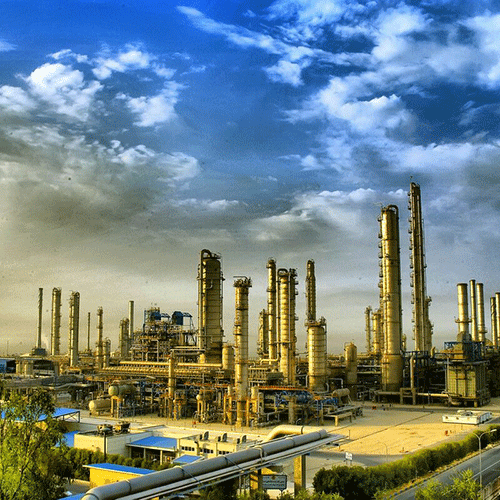
Q: The President of Korea has not visited Iran so far like many other heads of states have done before, eg. China. What do you think could be the reason?
A: Iran and South Korea enjoy strong economic ties with bilateral trade totaling roughly $10 billion in 2008. Iran-South Korea relations are diplomatic relations between Iran and South Korea. Throughout history, the two countries have maintained a relatively friendly and strongly strategic partnership.
Even though the President of Korea has not yet visited Iran, in May 2009, South Korean ministers participated in a major conference on foreign investment in Iran. South Korea also attended the Iranian gas forum on Sept. 26?27, 2009 alongside Germany, the United Kingdom, Japan, the Netherlands and Malaysia.
Important to note is that on Feb. 29, 2016 Iran is going to hold a joint economic commission between Iran and Korea. The minister of trade and industry and energy from Korea is going to attend the meetings which will be held in Tehran during that joint economic commission between Iran and Korea. So the interaction between Korea and Iran has been at the ministerial level.
We also look forward to hosting the President of Korea in Iran as the relations between the two countries continue to develop to the next level. When the relations have grown to the next level then we will consider a summit between Iran and Korea.
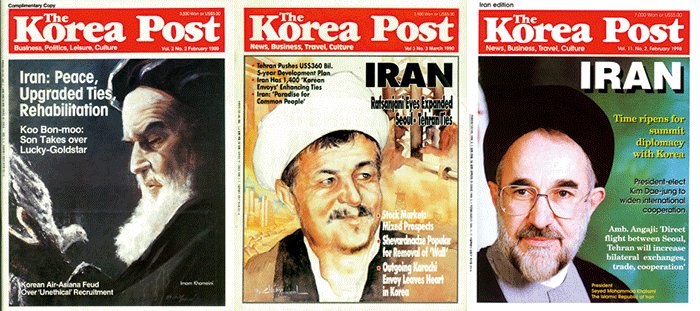
Q: I don’t remember any Head of State from Iran ever visiting Korea, can we hope that in the future we can expect to see such a visit?
A: I remember 15 or 20 years ago there was a plan to have the Head of State visit Iran from Korea, however I do not have details of why the planned visit did not materialize. That means for the last two or three decades there has not been a Head of State level summit between the two countries. Since now diplomatic relations between Iran and Korea have greatly developed we can think deeply on the possibility of holding such a summit in the near future when the President of form Korea and Iran visit each other’s countries.
Q: The Embassy has a big task of ensuring that the visits will materialize.
A: Oh Yes it will be my great pleasure to work very hard to see the possibility of such a visit take place. I will work hard in ensuring that the diplomatic relations continue to become strong to a level where such a visit can become a reality.
Q: Cheong Wa Dae receives 50 copies of The Korea Post monthly, and other publications, including a 20-page Korean-language newspaper. I will mention that the Ambassador of Iran is working towards strong diplomatic relations between the two countries.
A: Thank you.
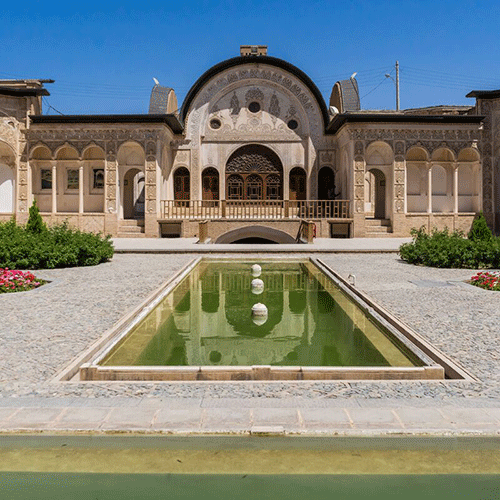
Q: Please introduce in full the National Day of the Islamic Republic of Iran.
A: The National Day of Iran celebrates the Iranian Revolution (also known as the Islamic Revolution or the 1979 Revolution). The day marks events involving the Overthrow of the Pahlavi Dynasty under Mohammad Reza Shah Pahlavi, who was supported by the United States and its eventual replacement with an Islamic Republic under the Grand Ayatollah Ruhollah Khomeini, the leader of the revolution, supported by various leftist and Islamic organizations and Iranian student movements.
Demonstrations against the Shah commenced in October 1977, developing into a campaign of civil resistance that included both secular and religious elements. The demonstrations intensified in January 1978 and by August to December of 1978 strikes and demonstrations paralyzed the country.
The Shah left Iran for exile on Jan. 16, 1979, as the last Persian monarch, leaving his duties to a regency council and an opposition-based prime minister. Ayatollah Khomeini was invited back to Iran by the government and he returned to Tehran to a greeting by several million Iranians. The royal reign collapsed shortly after on Feb. 11 and Khomeini was brought to official power. Iran voted by national referendum to become an Islamic Republic on April 1, 1979, and to approve a new theocratic-republican constitution, whereby Khomeini became the Supreme Leader of the country in December 1979.
The revolution replaced a pro-Western semi-absolute monarchy with an anti-Western authoritarian theocracy based on the concept of Guardianship of the Islamic Jurists. It was a relatively non-violent revolution, and helped to redefine the meaning and practice of modern revolutions (although there was violence in its aftermath). The National Day is celebrated on the February 11th every year.
Q: What are the most important areas of economic development in Iran following the lifting of sanctions?
A: Oil and gas are very important to Iran. These two oil and gas are the primary economic drivers in Iran. Iran is OPEC's second largest producer and also boasts of having the world's second largest oil and gas reserves. Iran promises to grow in the near future in areas of drilling, exploration, refining and training.
The Iranian government has been reconstructing its oil production and export facilities since the conclusion of Iran-Iraq war in1988. The Iranian government has created new opportunities for investment in the oil sector by foreign companies.
Exporting about a million barrel a day, Iran plans to raise this amount to 1.5 million barrels a day in the near future which may go up to 2 million barrels a day within the next six months.
Other areas are the electricity production as a source of energy and the automobile industry.
Iran wants to work with other countries and for example the Korean partnership can come in very well in this area of automobile industry.
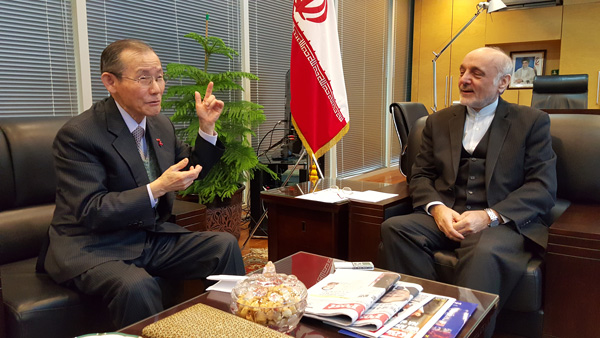
Q: In that case there is great potential in areas that Korea and Iran can cooperate. Korean automobile industry for example is looking outlets that can strengthen the production and expansion of Korean automobile industry. Iran is one of the countries that can be a possibility for Korea.
A: In all those sectors there are many open opportunities for the Korean companies and organizations that can be quite beneficial. Looking at the area of oil and gas where Hyundai was working before they can easily resume partnerships since the sanctions have been lifted and Iran is open to the world for investments. This is important for Iran and a good opportunity for Korean companies interested in venturing into Iran for expansion.
For the automobile companies as you have mentioned it is one of the very important industries where I am sure that Hyundai can be more involved in Iran. I advise that they explore the possibility of not only selling the finished products to Iran but also to explore the possibility of setting up a manufacturing plant in Iran. This will help in cutting costs of production and guarantee high profit turnover for the Korean companies. Iran has become a competitive market after the economic sanctions have been lifted that everyone interested can tap into.
I encourage the Korean companies known for their passion in work ethics to aggressively explore Iranian market before it’s late.
Looking at how the Iranian market has attracted other countries, for example, is the President of China who on visiting Iran signed 17 MOU and other agreements, which is a great sign that they have taken advantage of the open market. The Chinese government did take advantage during the sanctions period, too.
The Korean people have a great advantage when it comes to Iranian market because of the following:
Firstly, the Korean people were involved in the Iran market and have operational offices in Tehran. Secondly the Korean people have a good reputation in Iran because they undertook Infra-structure projects before and they were done with commitments and completed on time. Thirdly Iran has a good image of Korean products.
According to a report by the United States government, as of April 2010 there were three South Korean firms active in Iran’s hydrocarbon sector between 2005 and 2009 that received US government contracts totaling roughly $880 million. These were the Daelim Industrial Company, Hyundai Heavy Industries, and GS Engineering and Construction.
While other Western countries are interested in Iran, Iranians have preference for the Koreans. Though many delegates are visiting Iran to explore possibilities of starting a business and such like issues Korea can still take the advantage.
The President of Iran is scheduled to visit France and Italy and that shows Iran is engaging the world positively. The visits will be economic in nature and the European countries are very eager in tapping the Iranian market.
Once again I encourage the Korean companies to take advantage of this opportunity and explore the Iranian market.
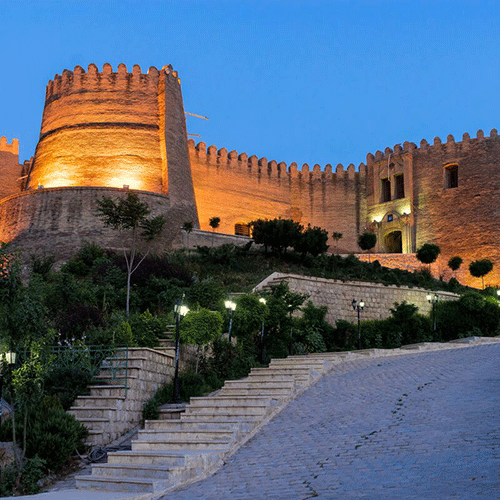
Q: What is the prospect of increase of the GDP and per-capital GNI of Iran in the new economic boom surroundings?
A: Current President of Iran Hassan Rouhani assumed office on Aug. 4, 2013. On his campaign trail he promised the people that his major task was to reverb the economy of Iran, increase the economic growth of the country. He has been successful in his two years of service by bring the inflation to 44% to 12% by last year’s statistics. He has been careful in controlling the inflation.
The Gross Domestic Product (GDP) in Iran was worth 415.34 billion US dollars in 2014. The GDP value of Iran represents 0.67 percent of the world economy. GDP in Iran averaged 148.91 USD billion from 1965 until 2014, reaching an all-time high of 576.56 USD billion in 2011 and a record low of 6.15 USD billion in 1965. Before he came to office the economy was very low, but now this year the economic growth will rise to 3.6% which is the prediction of the IMF that can go as high as 5%. With the foreign investments that are now flowing into Iran after the lifting of the economic sanction the economy will grow without any doubt
The availability of vast natural resources in Iran can only say that Iran has a bright economic future. There will be parliamentary elections in February where 290 members of parliament will be elected into parliament which is a single chamber that elects competitive leaders.
Q: What are the non-construction areas in Iran where Korean cooperation is desired?
A: In February 29 this year, Iran will hold a Joint economic conference in Tehran accompanied by a business forum. There is a possibility that 100 companies from Korea will attend and this will be a good opportunity for the Korean companies and Iranian people to work in partnership. This will be a forum where Korean companies can formalize the proposals that have so far been made towards partnering and having a breakthrough in the Iranian market.
Q: Korea is fairly well advanced in medical industry. What’s your view of increased cooperation in this area between Korea and Iran?
A: The Exim Bank in Iran has already signed an MOU that will ensure that Exim Bank finances the 5 million USD loan for the construction of a modern hospital and a medical facility in Tehran.
When that happens construction companies will have wide open opportunities to work on the sites. Iran plans to construct more than 10 hospitals that will have a capacity of 500 beds to 1000 beds.
Samsung, Hyundai, LG and other companies from Korea are already engaged in discussions in the procurement of tenders for the construction of these hospitals.
Q: Please introduce yourself in detail for the readers of the five-media outlets of The Korea Post, three in English and two in the Korean language:
A: I was born in Tehran, took a degree in Economics, followed by a Master’s in Unite States where I did a master’s in Economics, too. I have worked as ambassador in Seoul as well as in North Korea.
Two of my children, my son and daughter, were born in Seoul in 1985.
Iran is that much important for Korea. We would be very glad to introduce Iran widely. I greatly appreciate the efforts by The Korea Post for taking your time and proposing.
The Korean TV drama the “Jewel in the Palace” is very popular in Iran and therefore many Iranian people know about Korea through this drama.
The drama shows the respect for the elders and the upholding of the family values. That is one way that Iranian people can make a cultural connection with the Iranian people.
